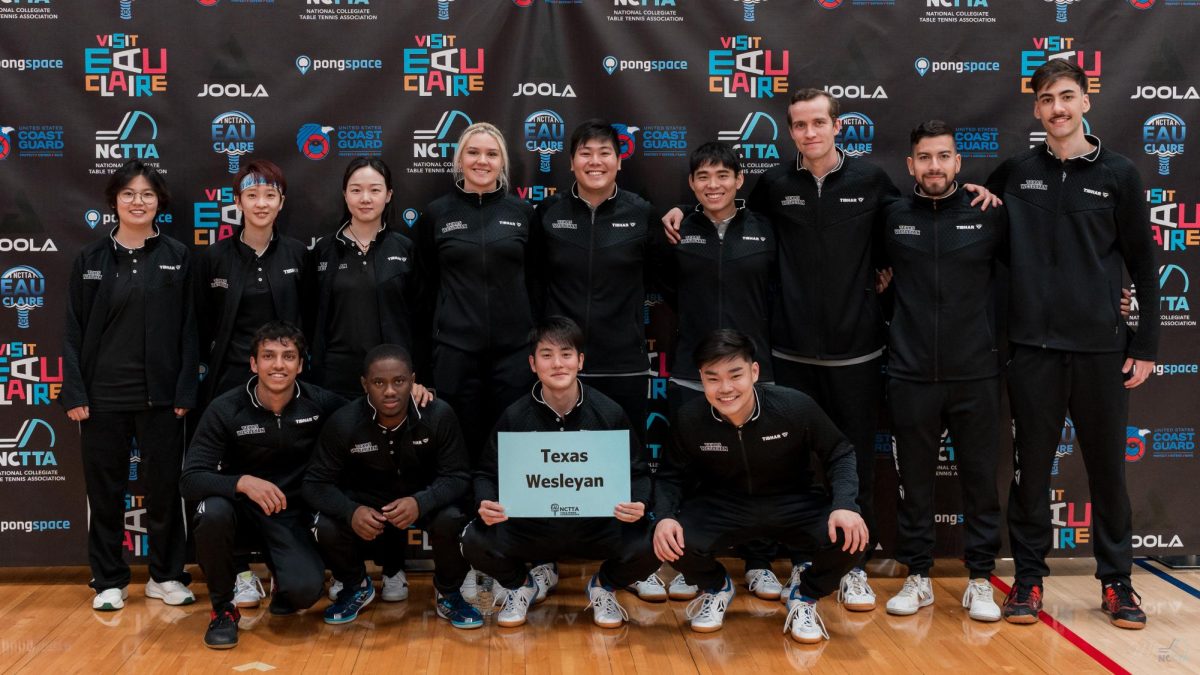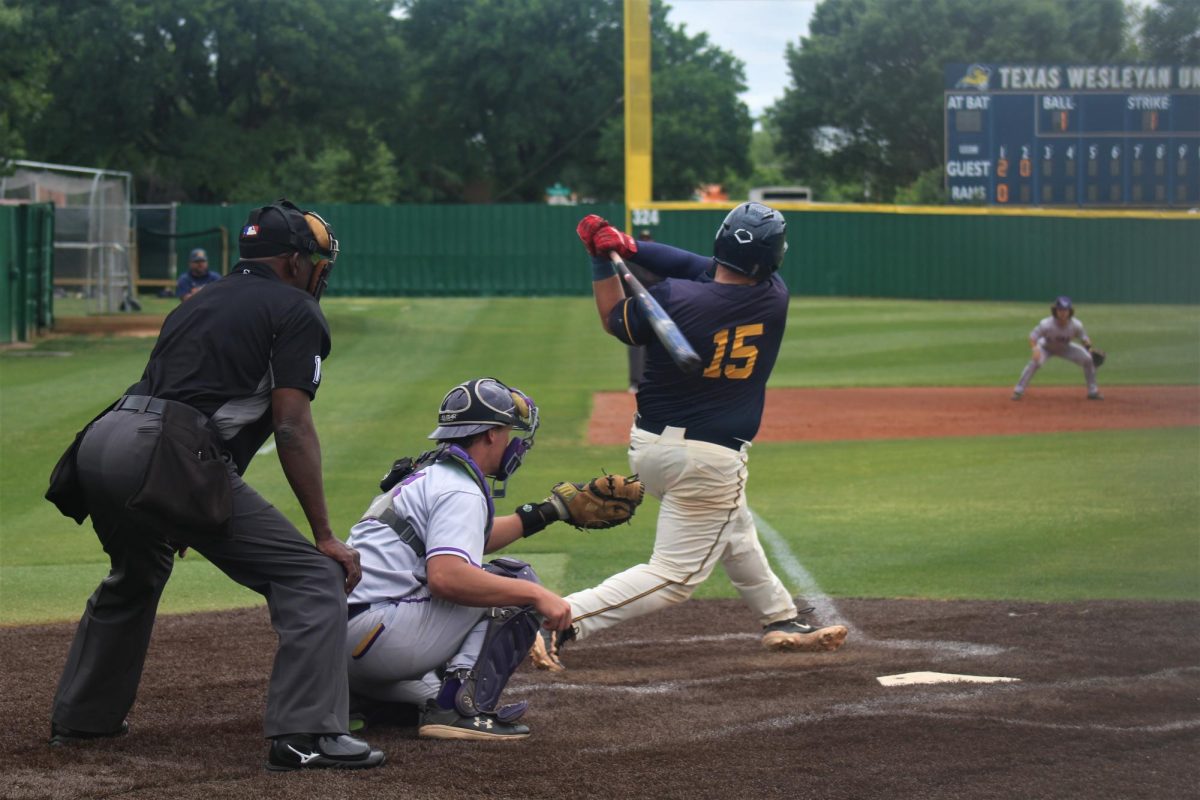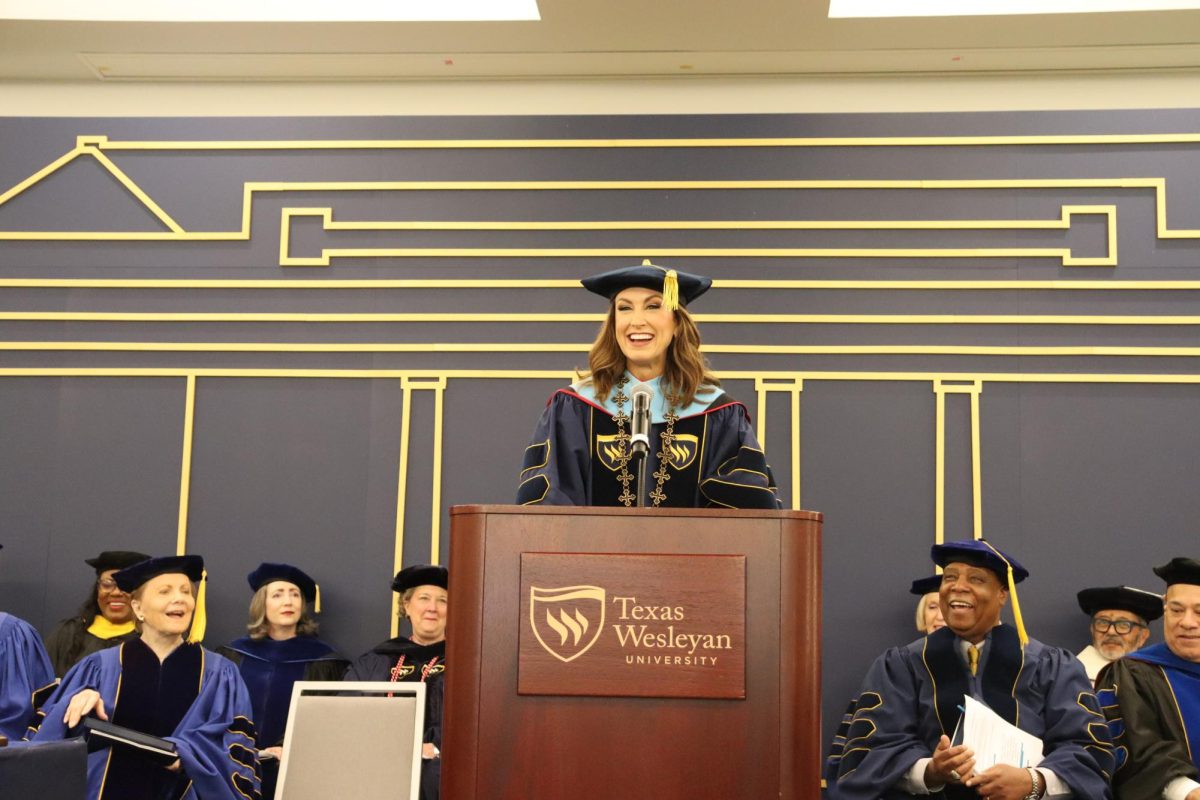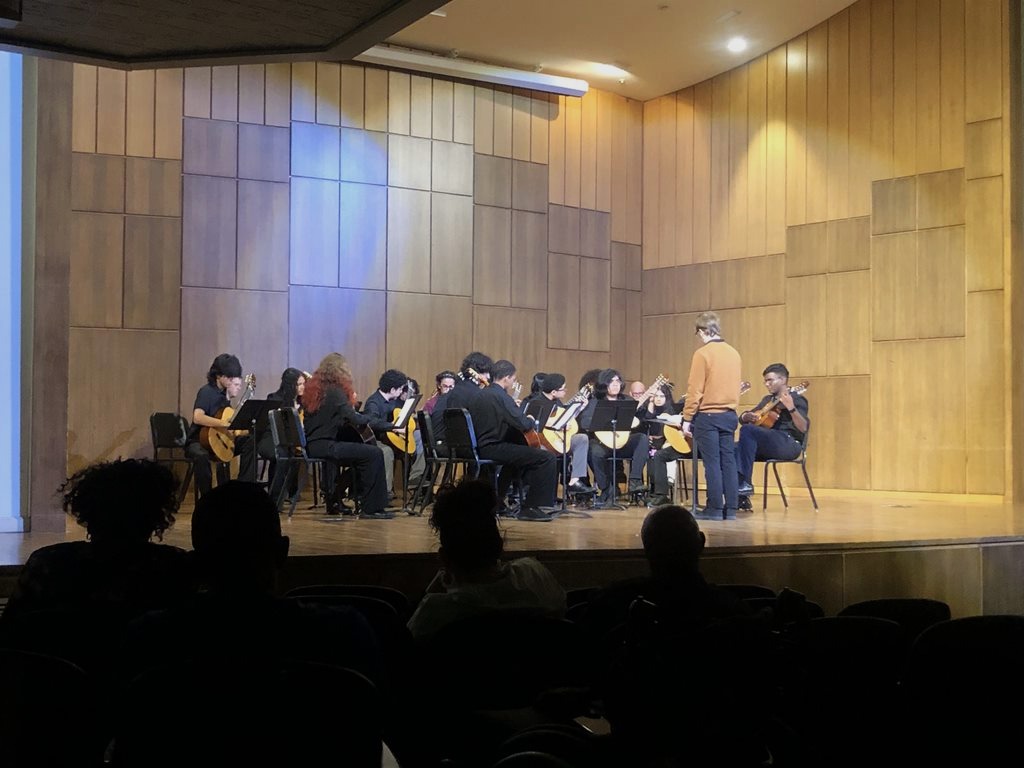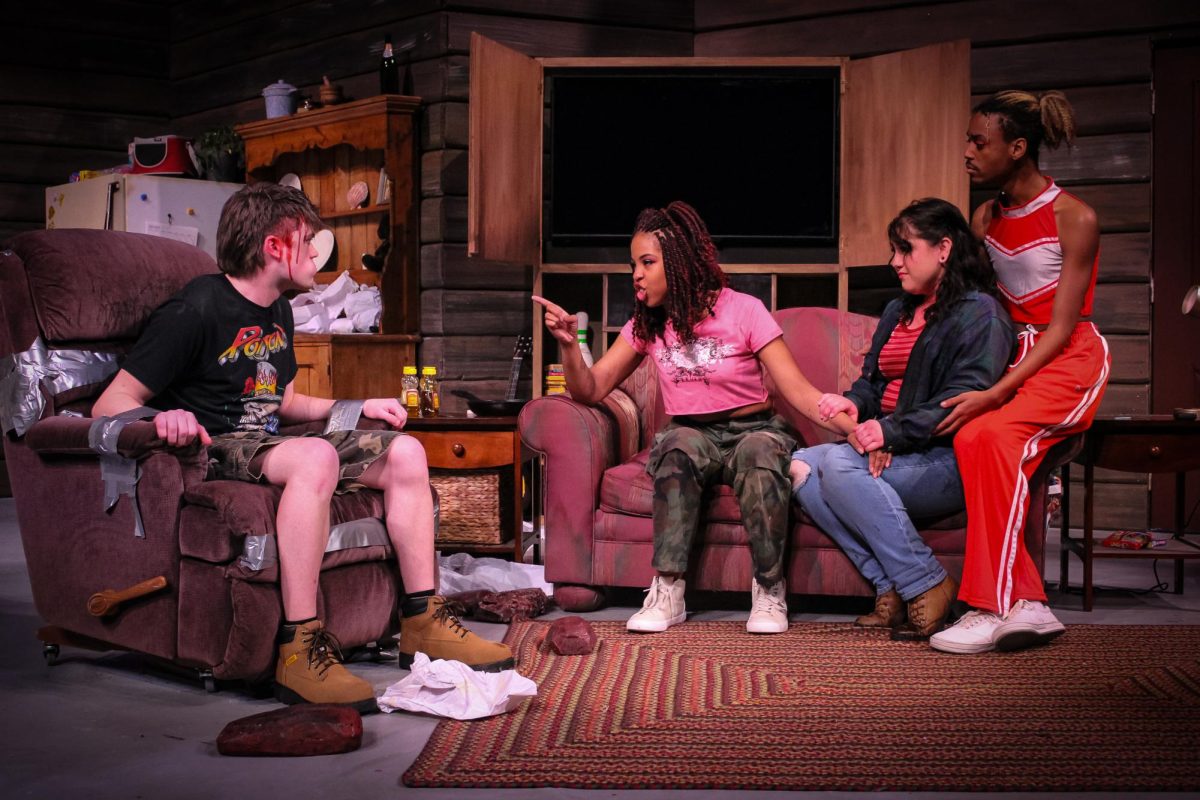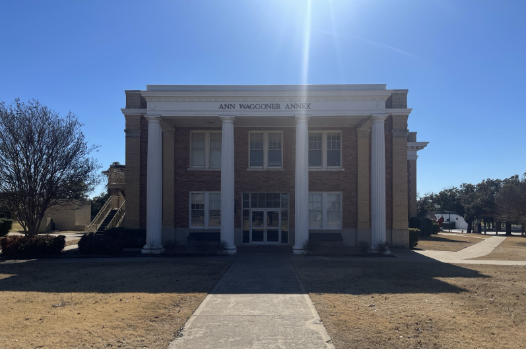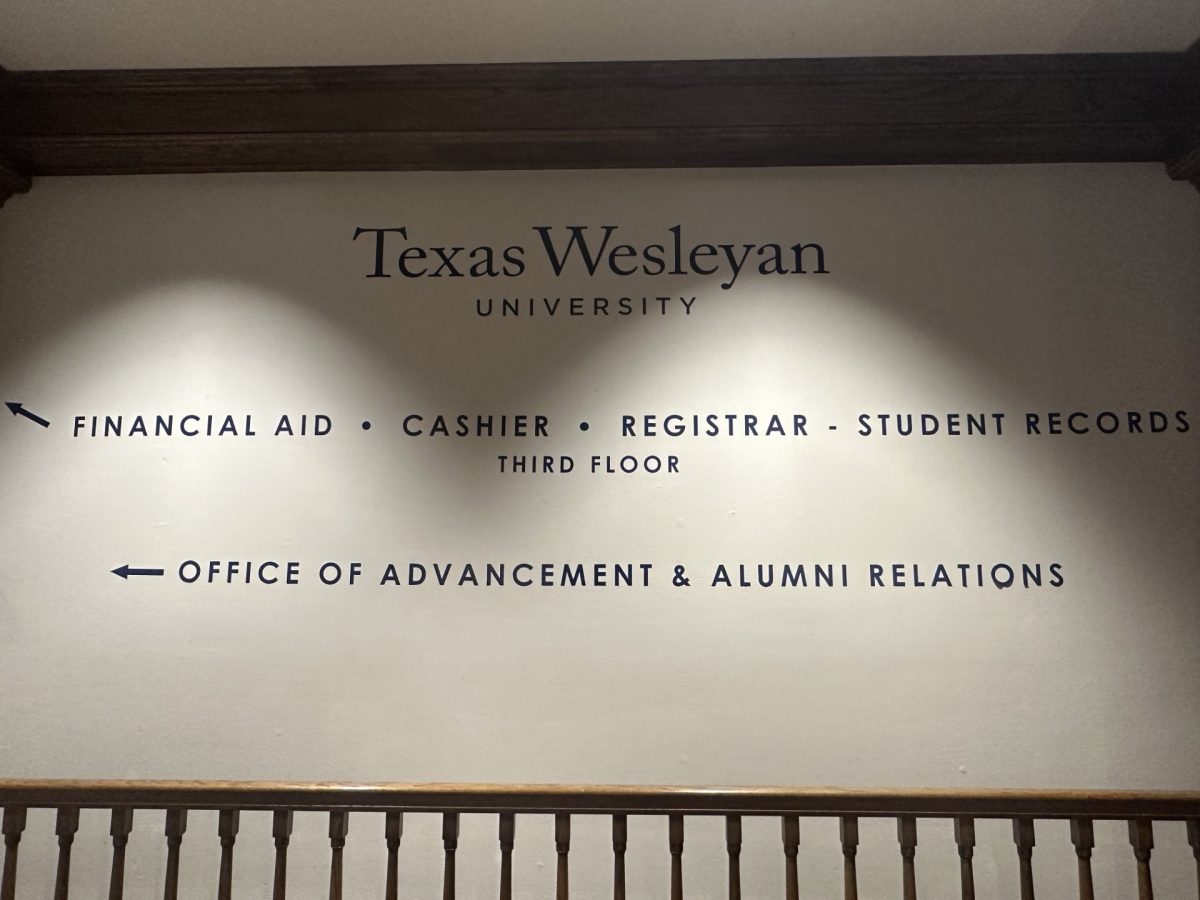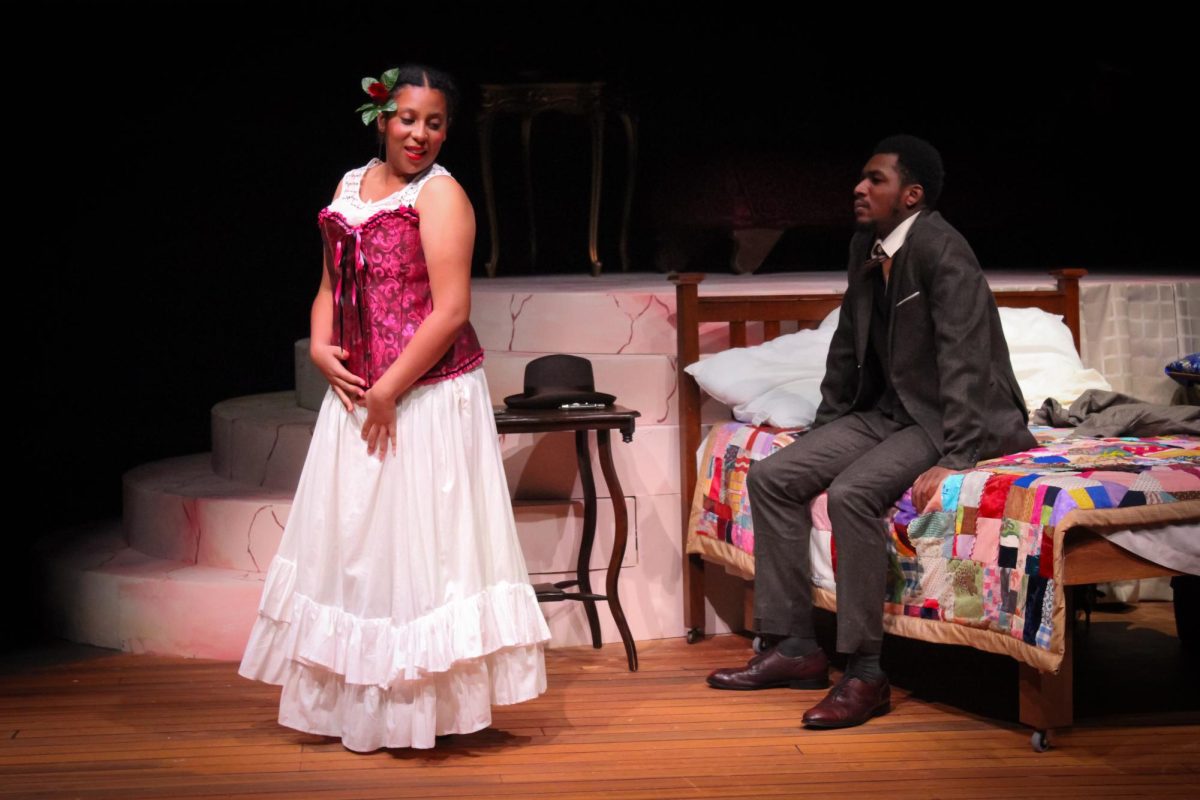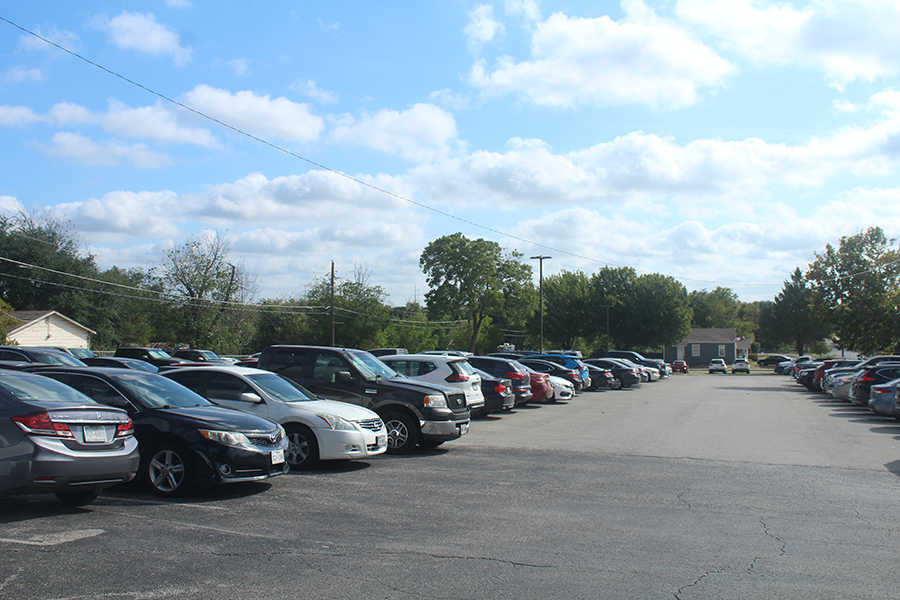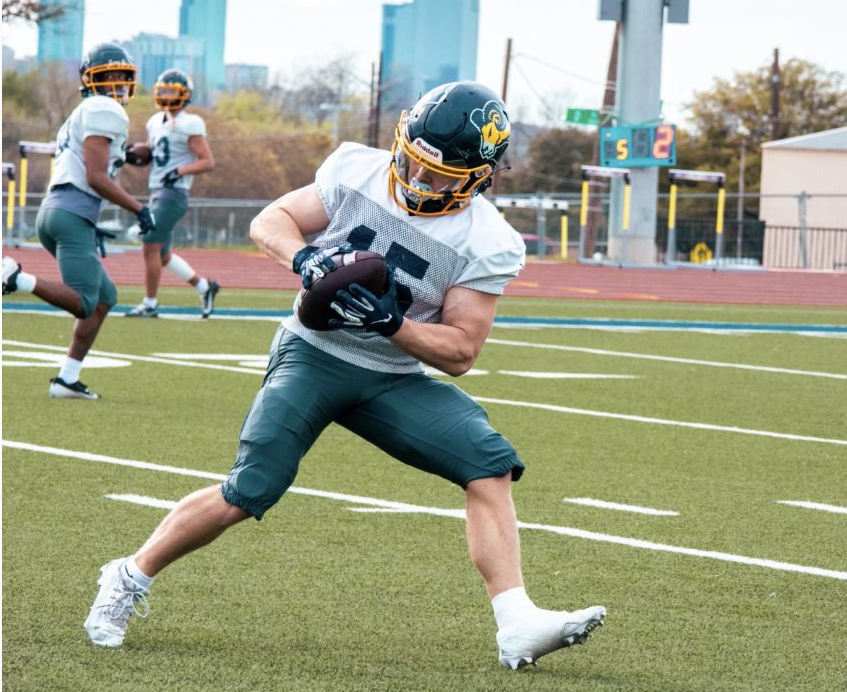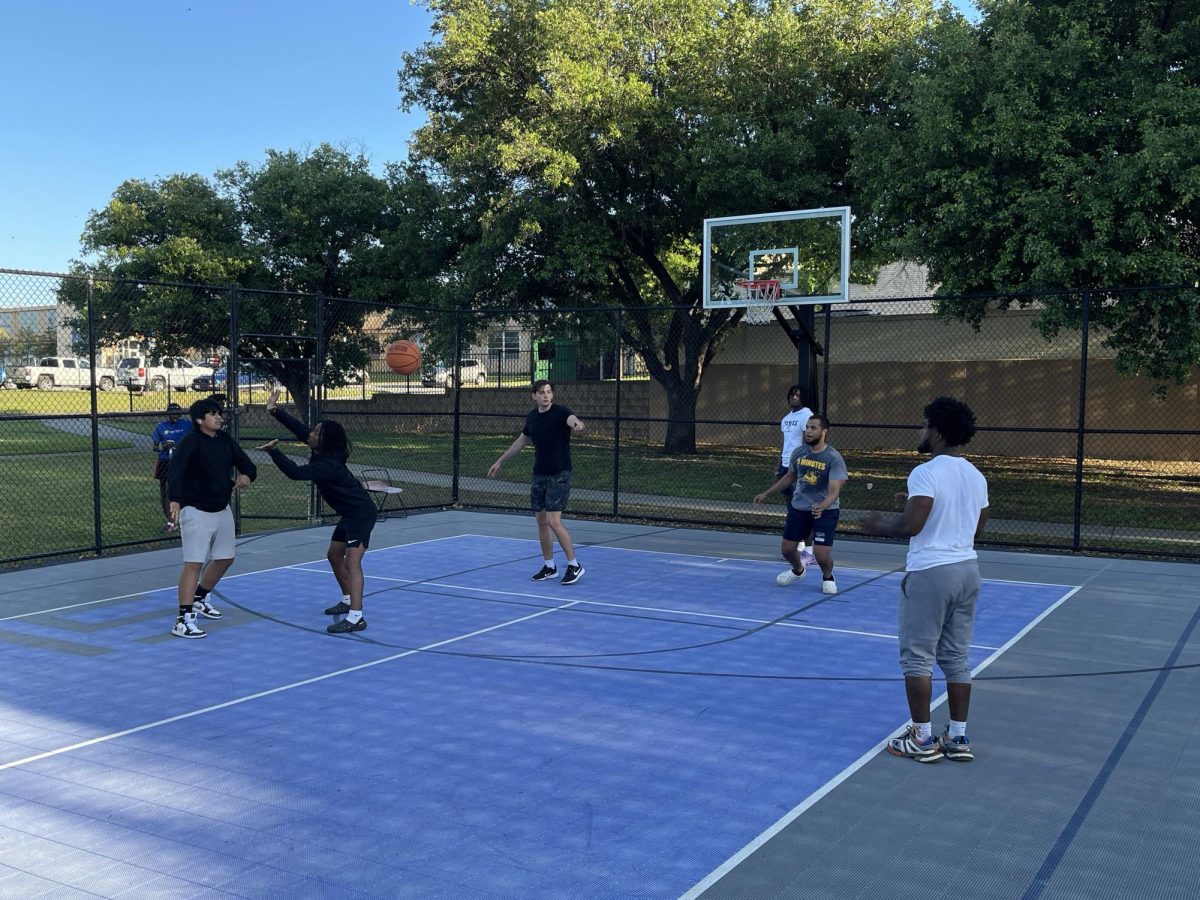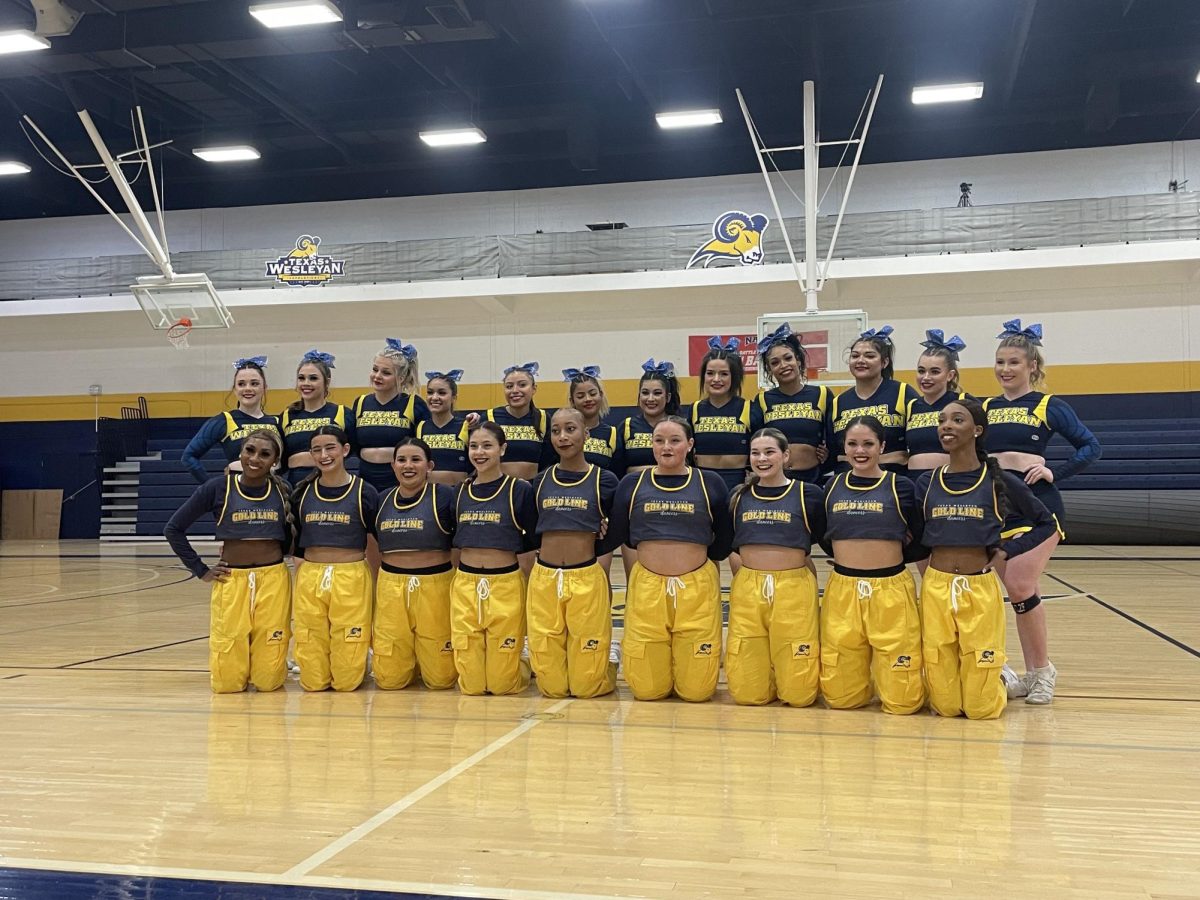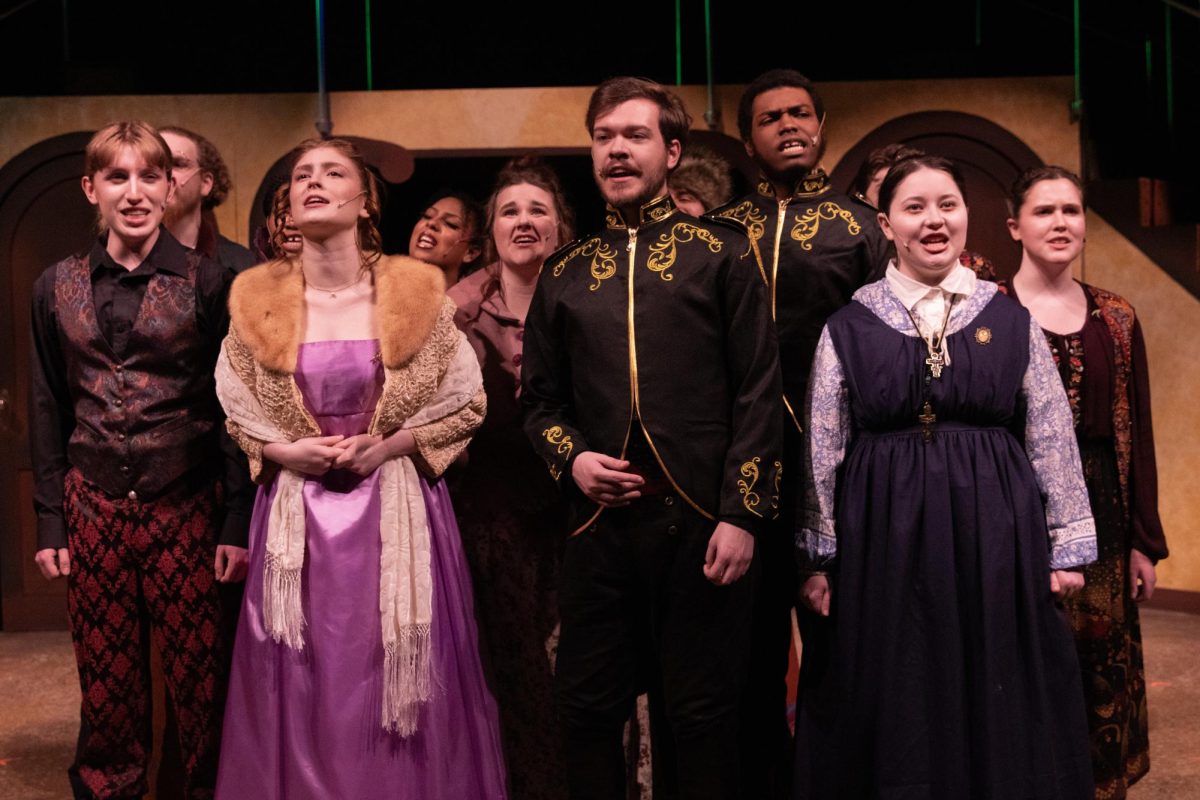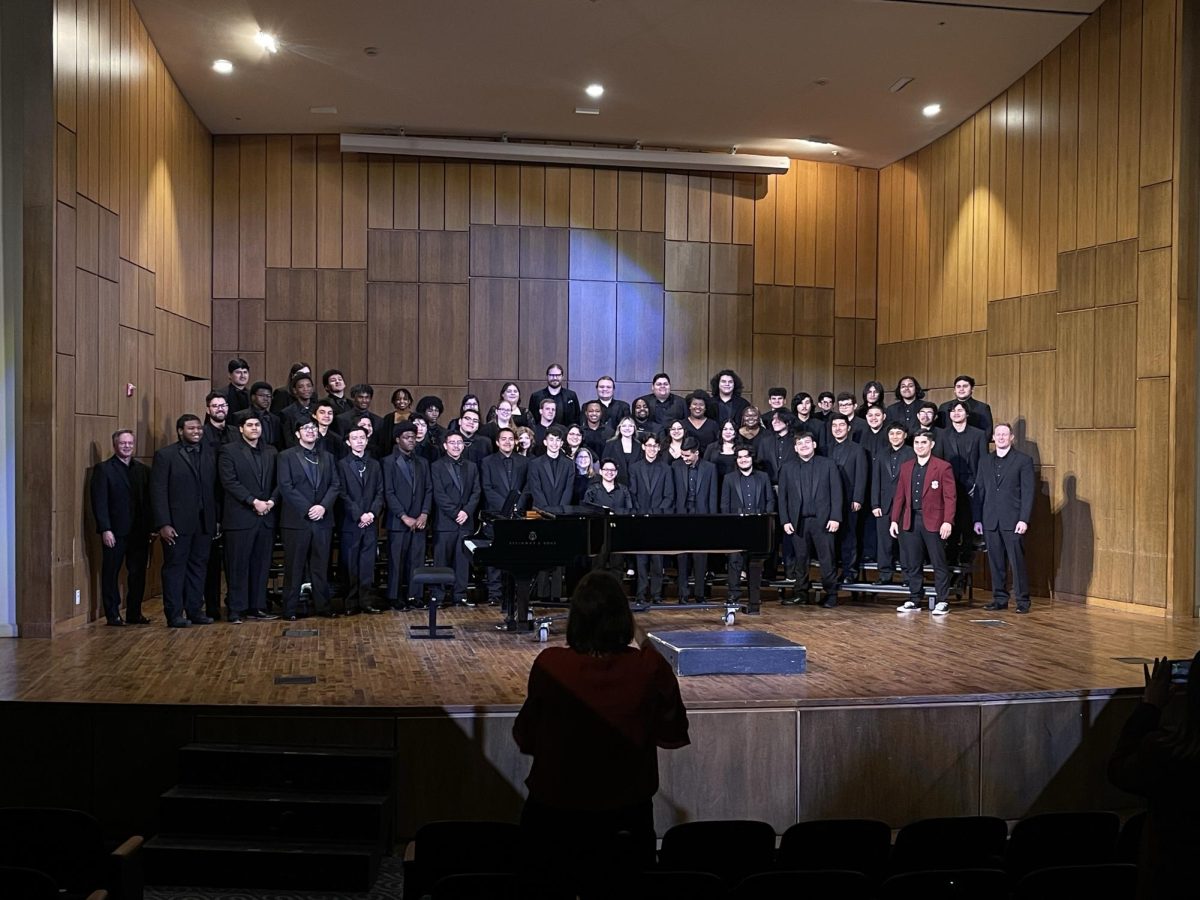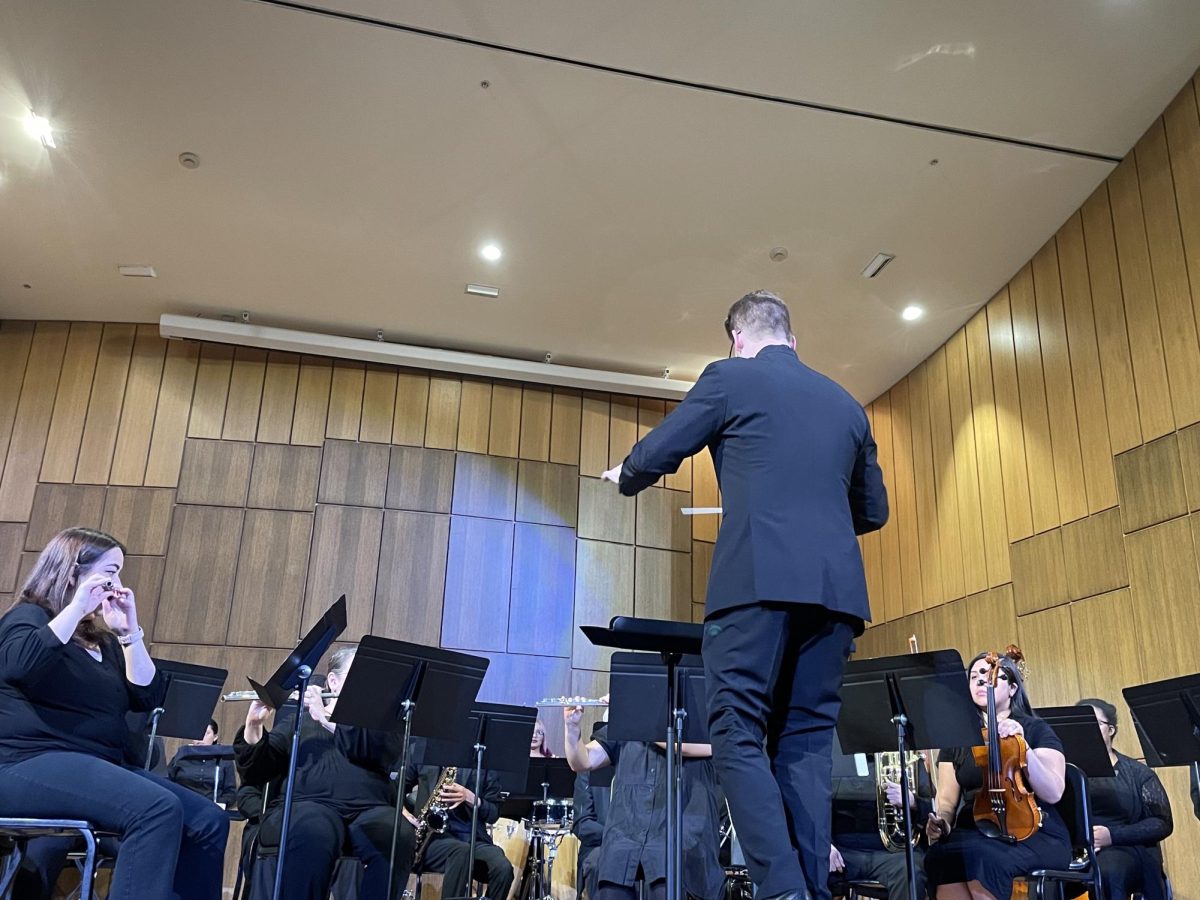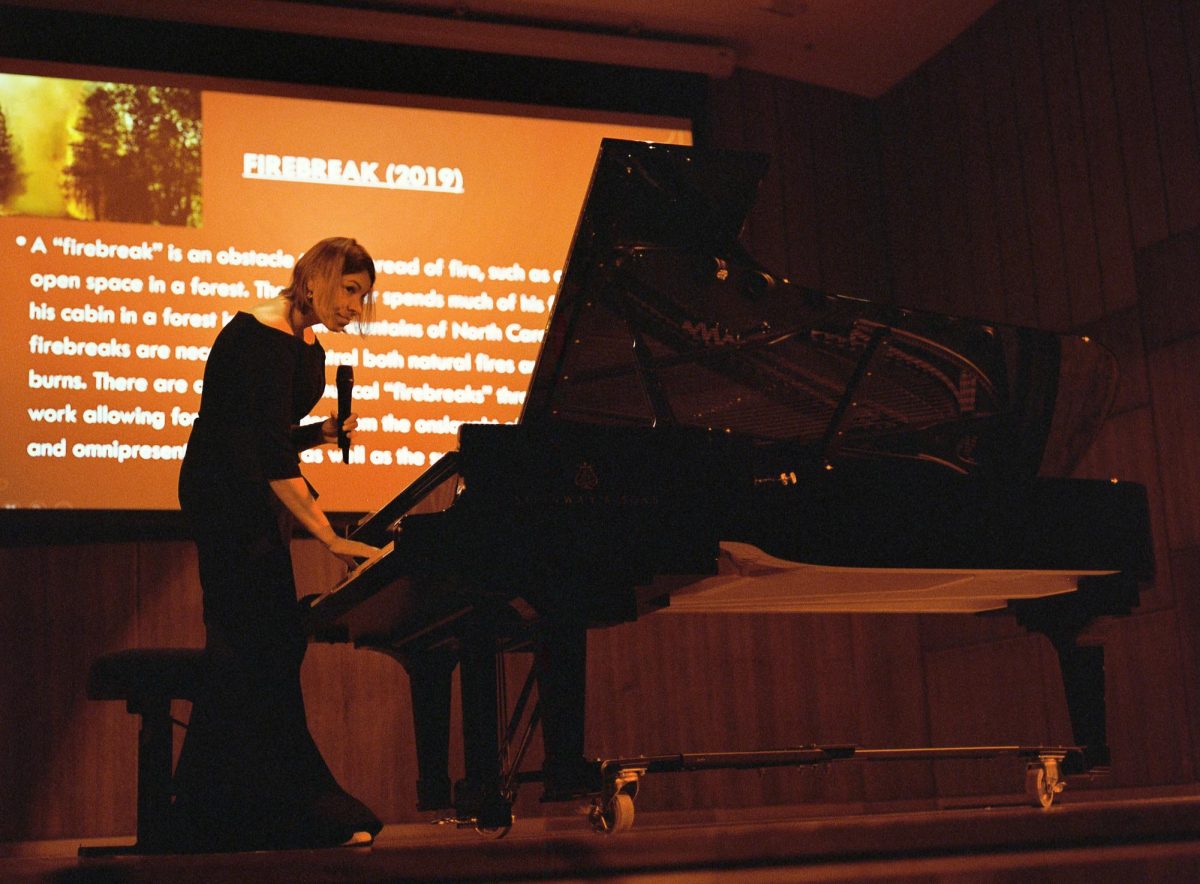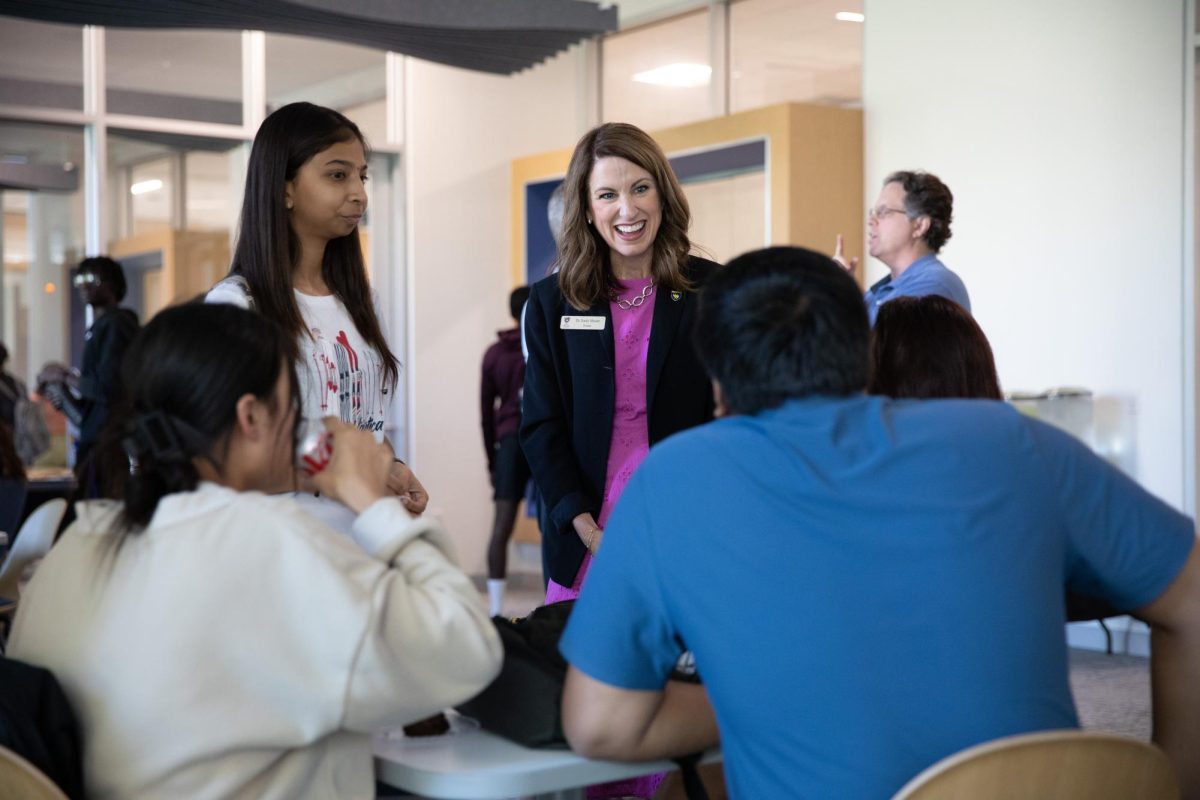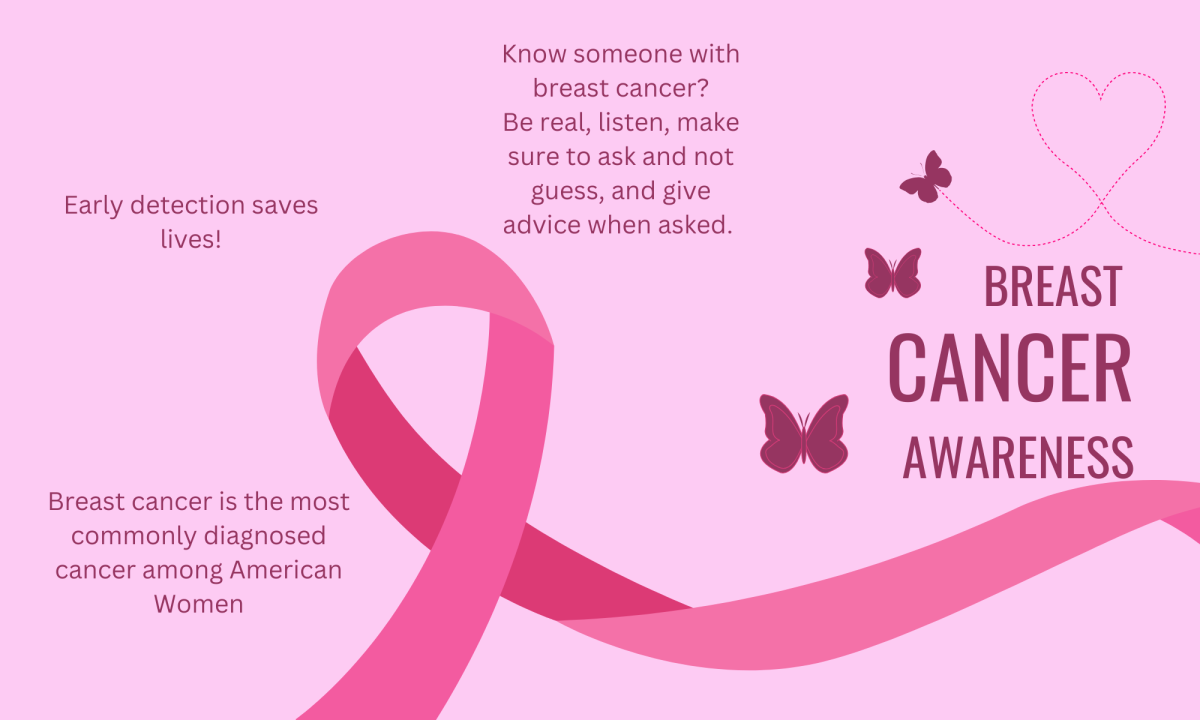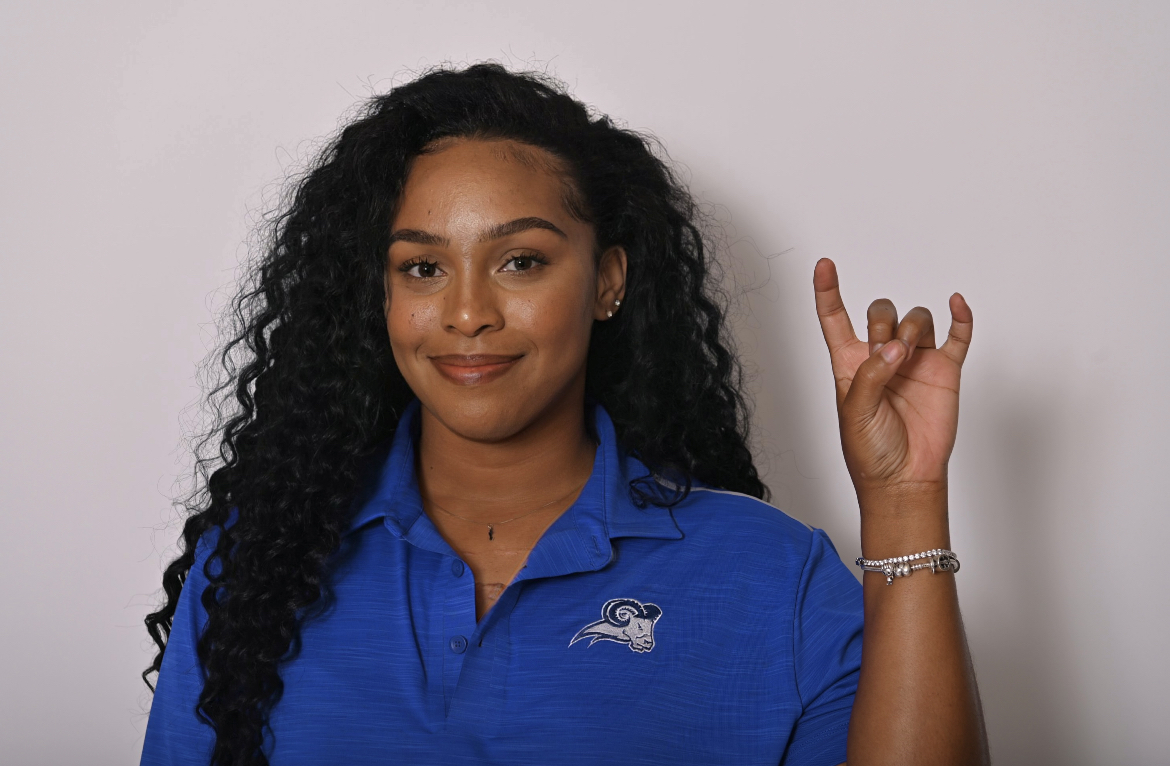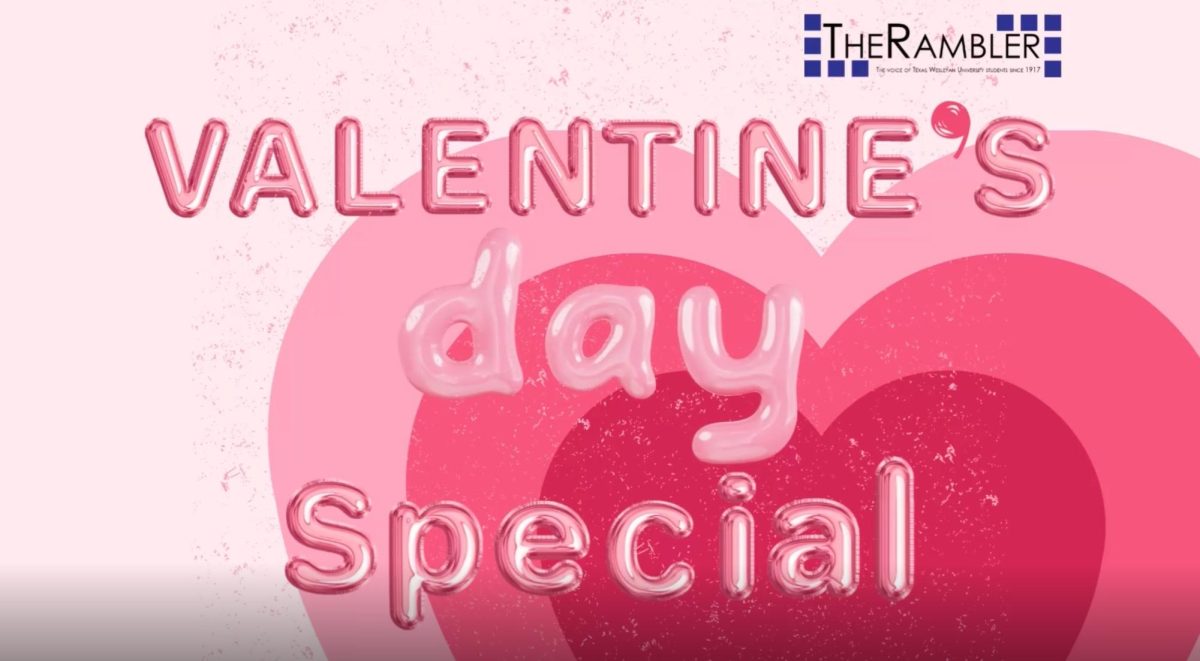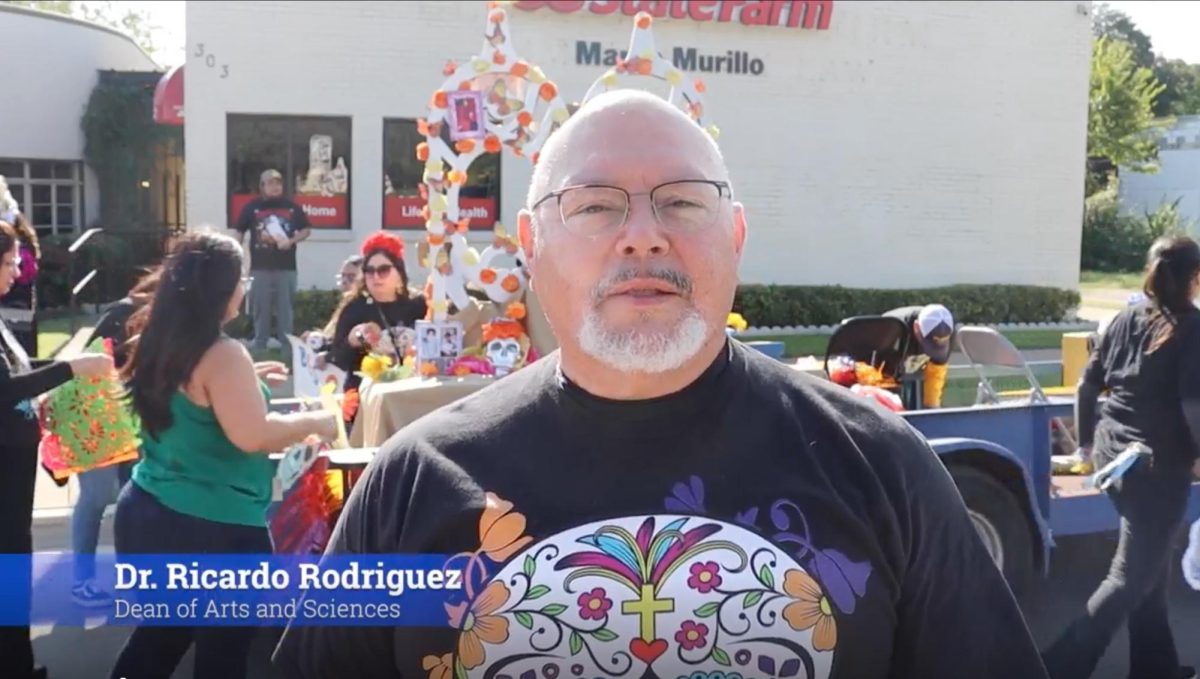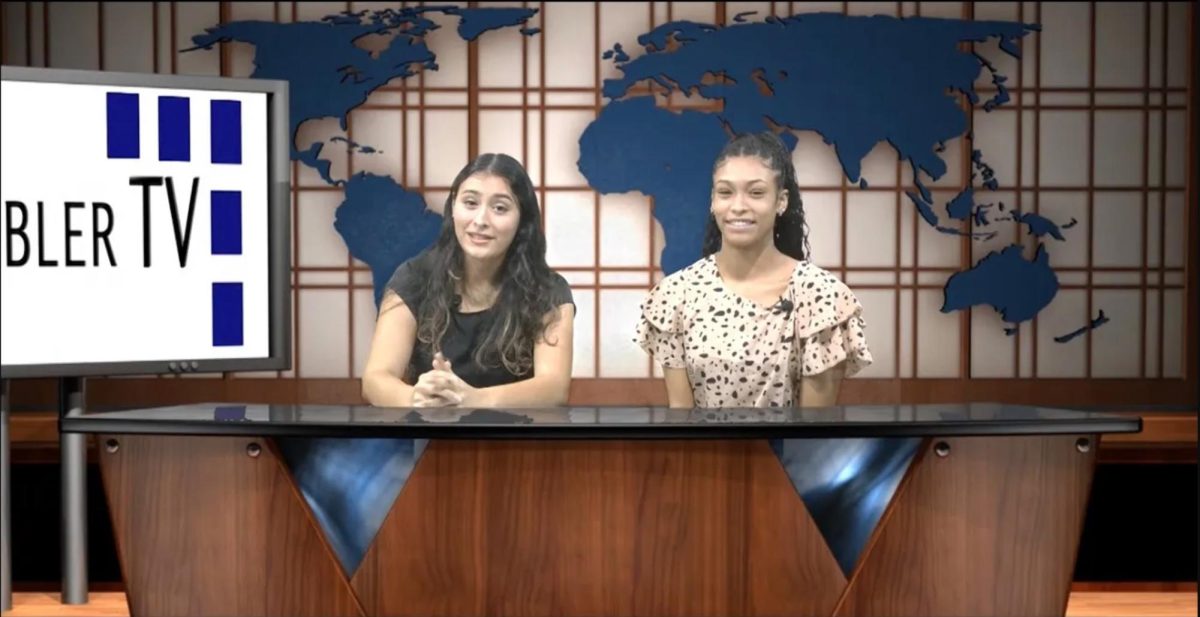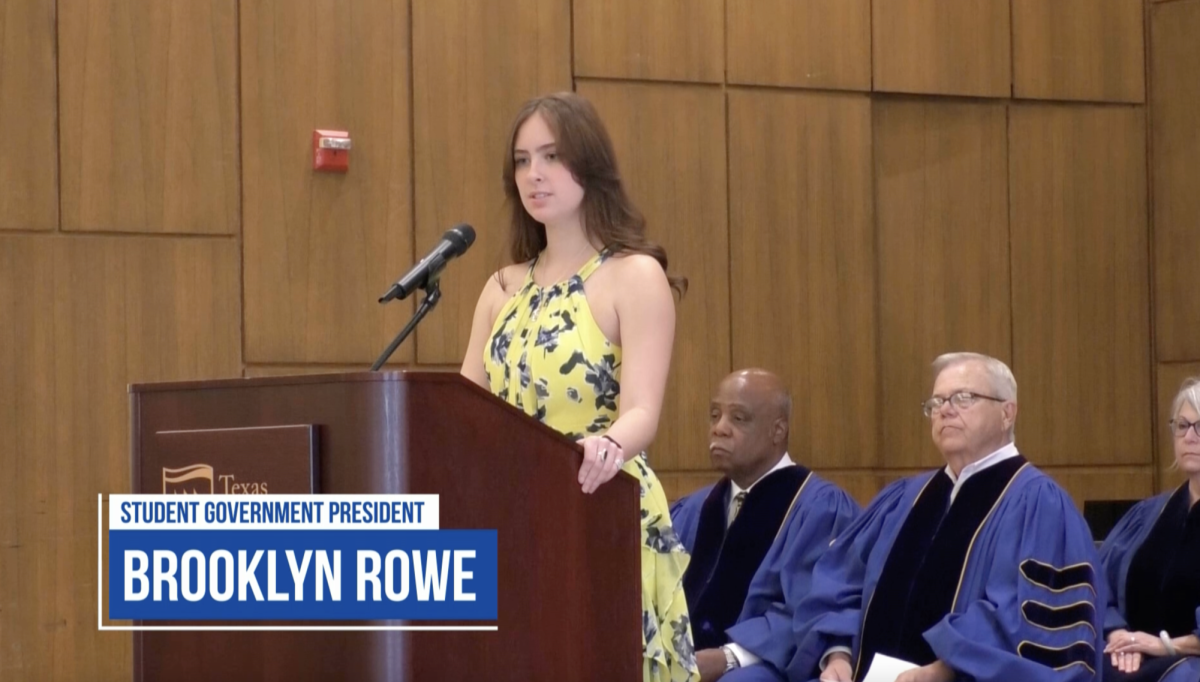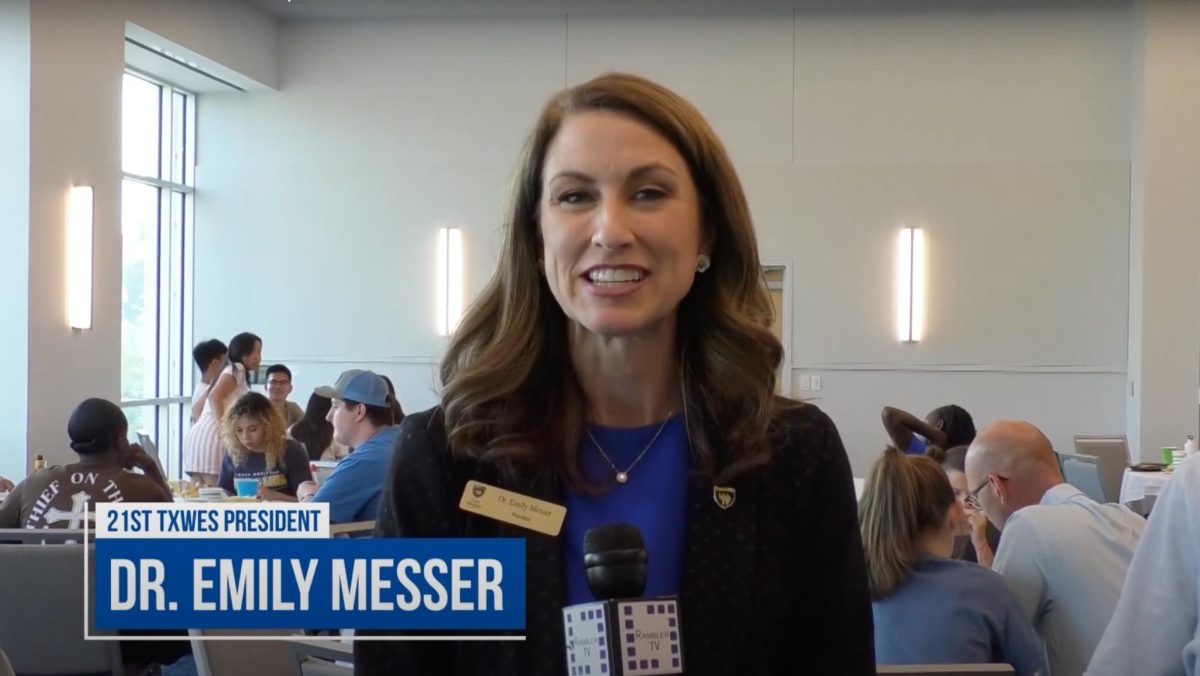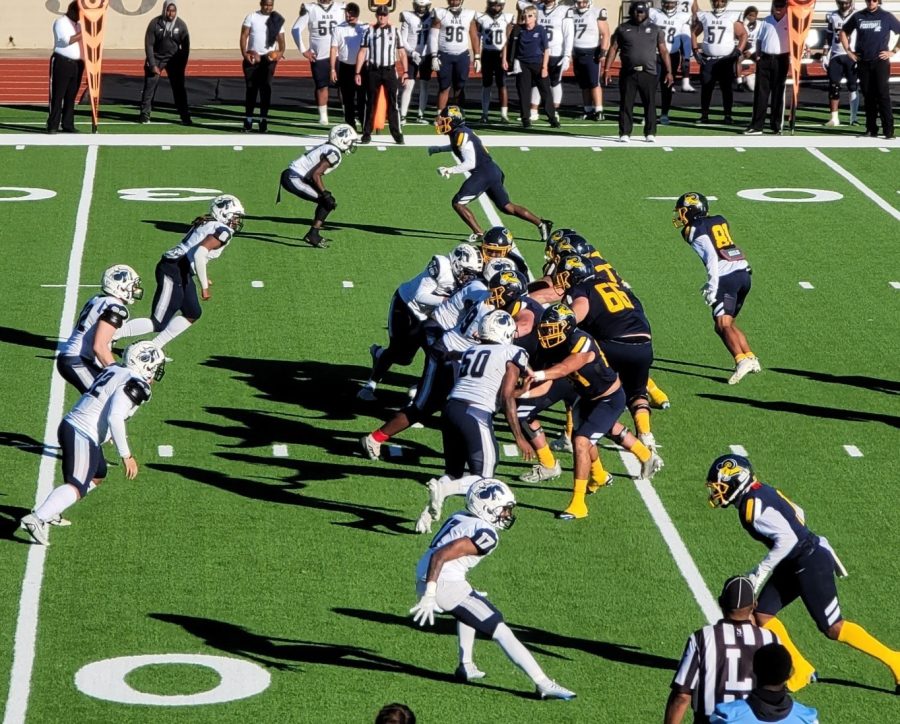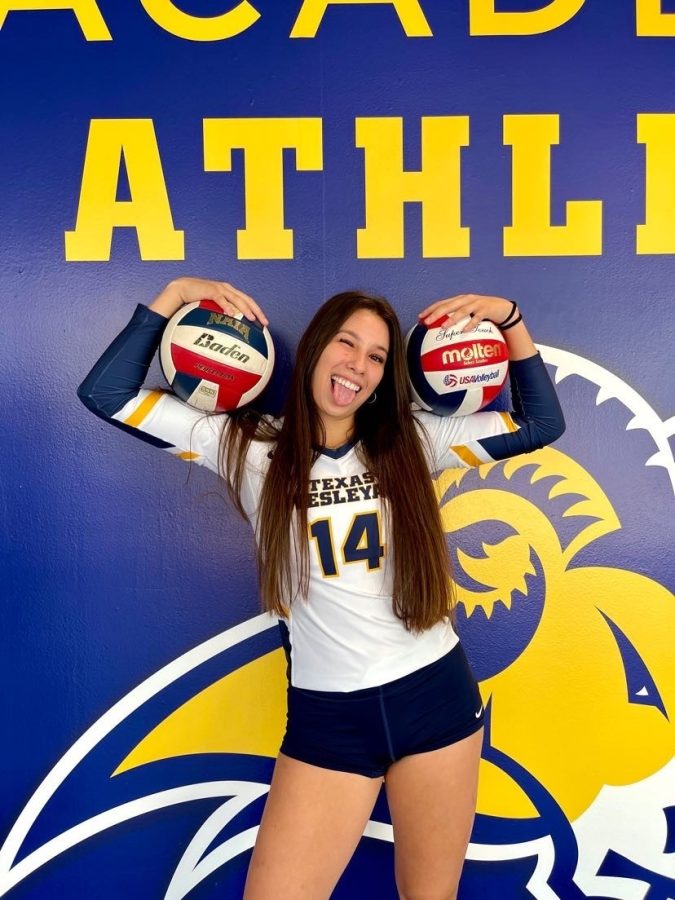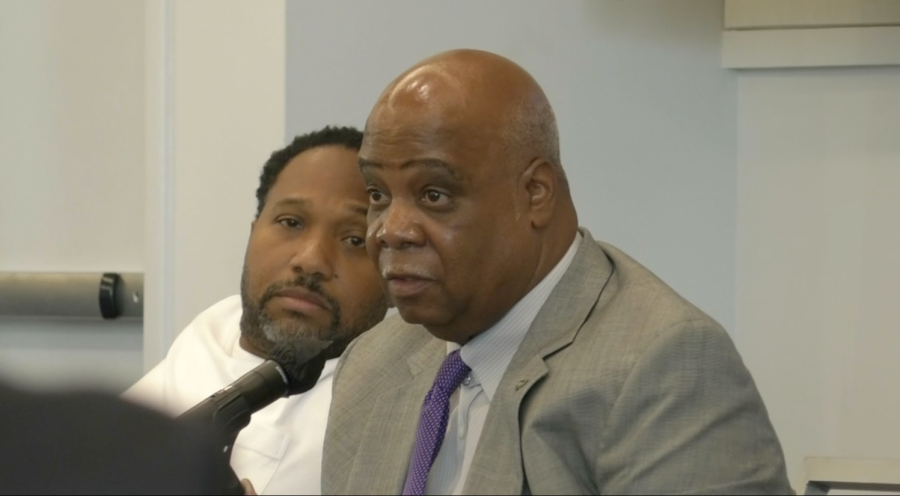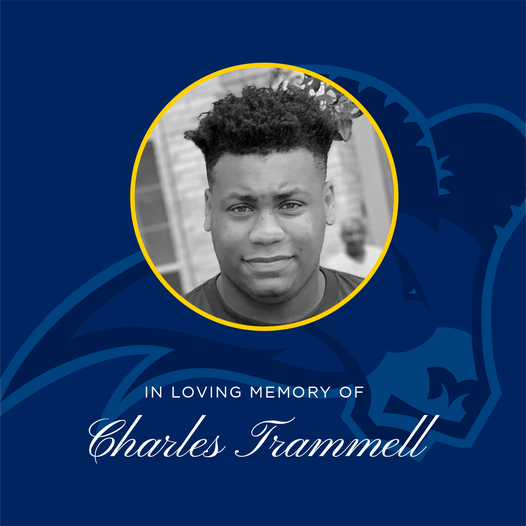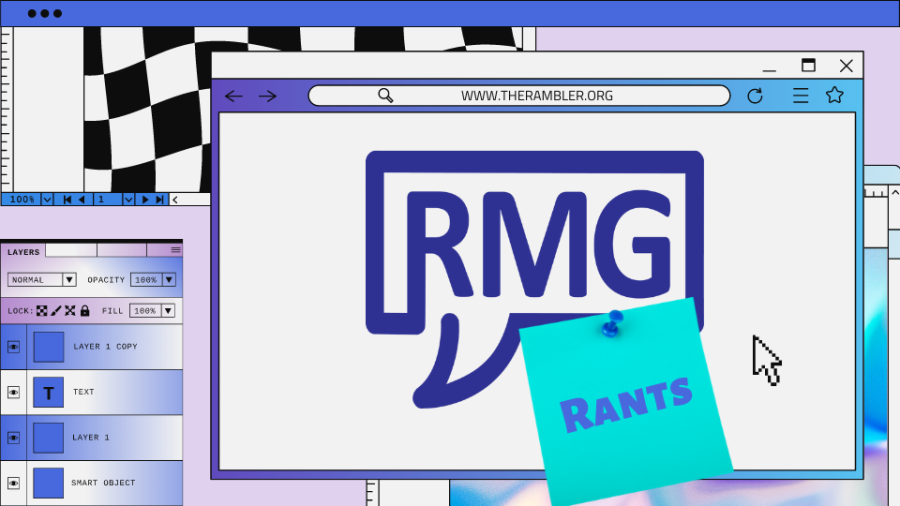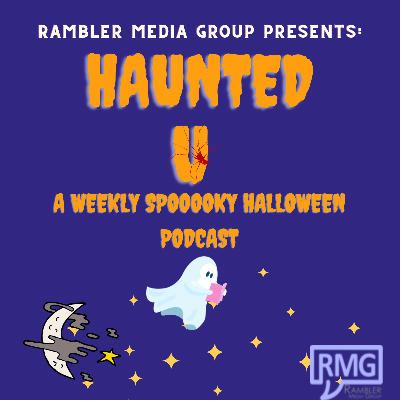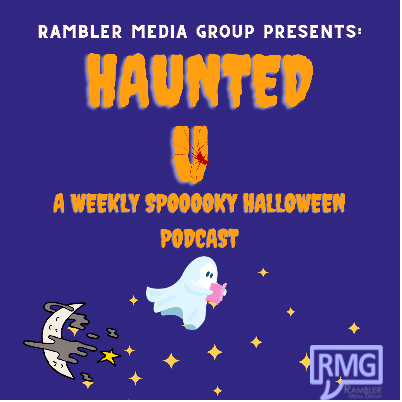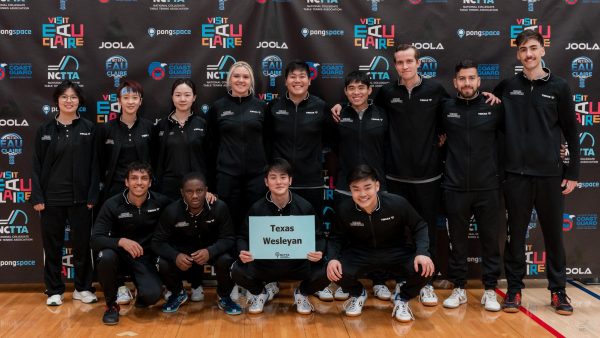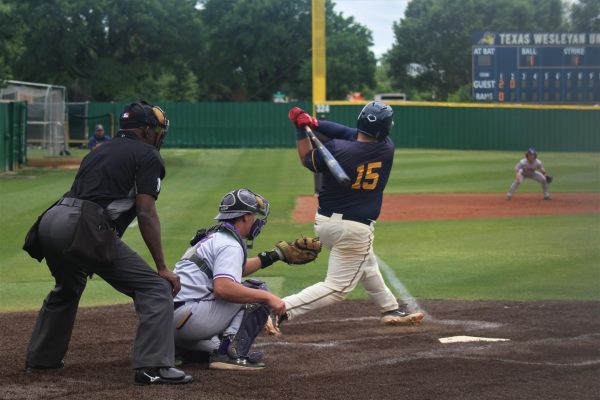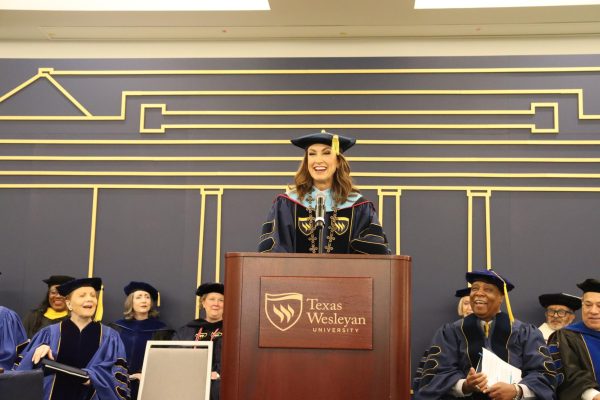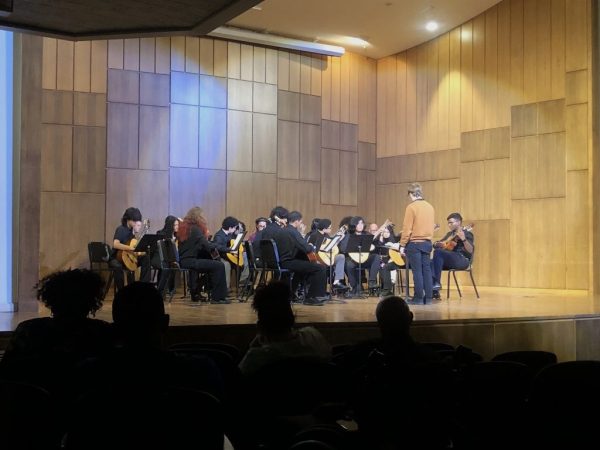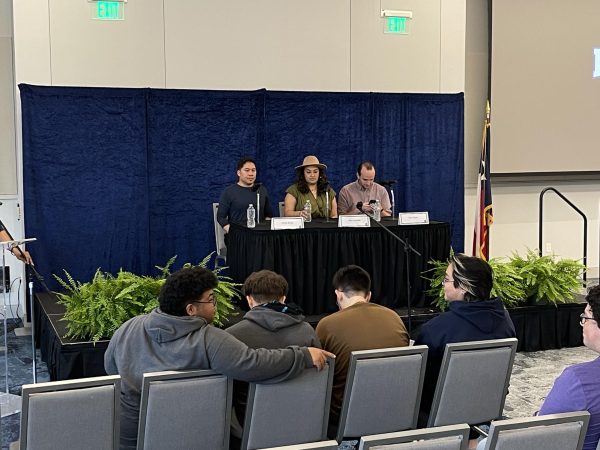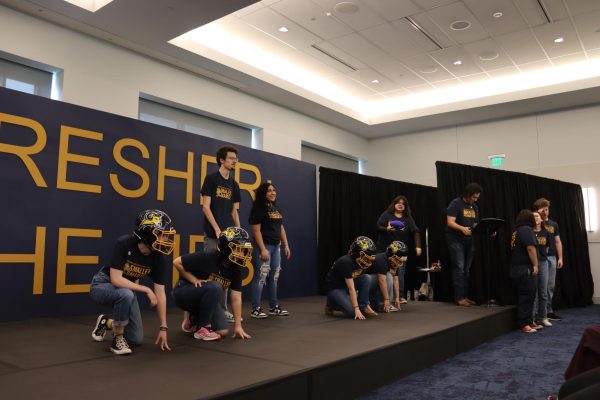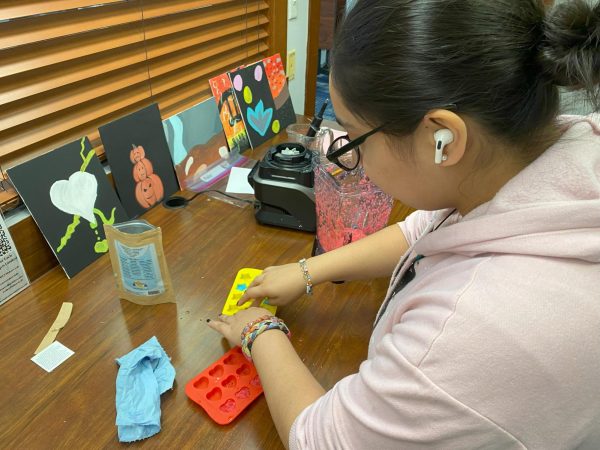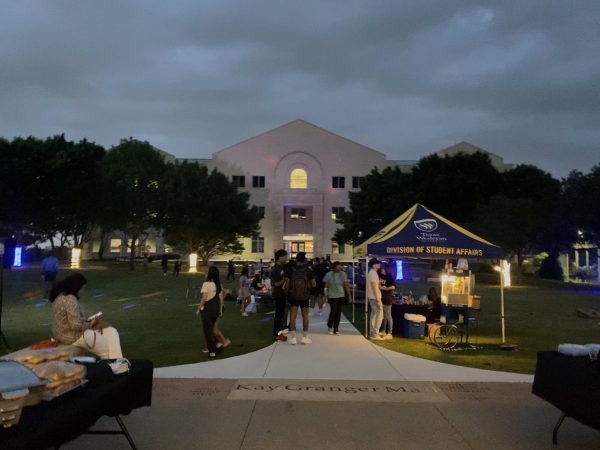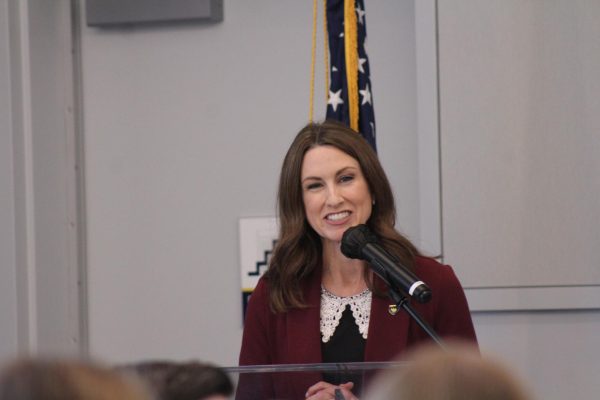Panelists at TxWes discuss the conflict in Ukraine
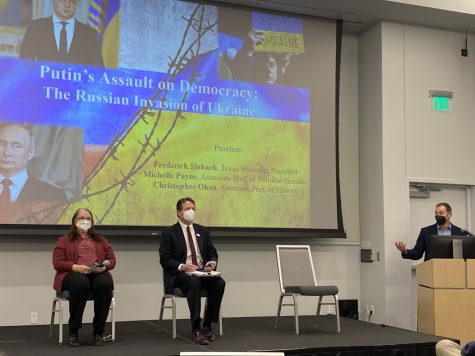
A panel of Texas Wesleyan University faculty members conducted an informational presentation and answered questions from the audience about the rising conflict between Ukraine and Russia, Tuesday. Students, faculty and staff members filled the Martin Center Ballroom to listen to the panel discussion titled “Putin’s Assault on Democracy: The Russian Invasion of Ukraine.”
Russian troops launched an invasion on Ukraine borders on Feb. 24 claiming their intentions were peaceful. Since the invasion, Ukrainian troops were called to protect their borders and fighting has been reported daily.
The panel featured University President & Professor Dr. Frederick Slabach, Associate Professor of History Dr. Christopher Ohan and Associate Professor of Political Science Dr. Michelle Payne.
After a brief history of Ukraine and political conflicts given by Ohan, each of the panelists answered a series of prepared questions like ‘Why is Putin doing this?’, ‘What is the role of diplomacy?’ and ‘What is the role of social media?’ to help the audience have a better understanding of the Ukraine-Russian conflict. They wrapped up the discussions with questions from the audience.
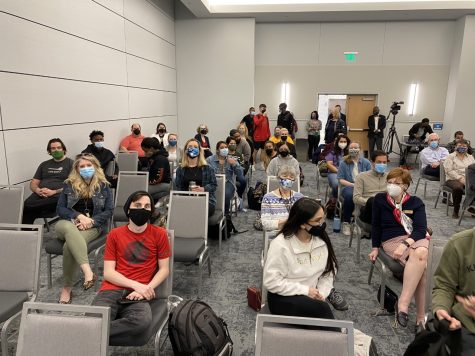
Debany Chavez, a third year double major in criminal justice and political science with a pre-law track, attended the panel with the intention of educating herself with facts about the conflict. “Some people are really ignorant of the situation so the background, the history, was interesting. There was a lot of knowledge we gained from this experience,” Chavez said.
When detailing the brief history of Ukraine, Ohan gave a timeline of events as far back as World War II. In response to the conflicts between nations, in 1949 the North Atlantic Treaty Organization (NATO) was established to protect and facilitate diplomacy among arguing nations. After WWII ended, Ukraine was established as an independent sovereign nation, separate from the Soviet Union, but not a member of NATO.
Ohan continued explaining how Russian leaders influenced politics in Ukraine since the separation. For years, Russian officials have emphasized the belief that Ukraine is not independent, but in fact, still connected to Russia.
Ohan indicated that the current conflict between Ukraine and Russia increased when President of Russia Vladimir Putin did not want President of Ukraine Volodymyr Zelenskiy to request membership as an independent nation with NATO.
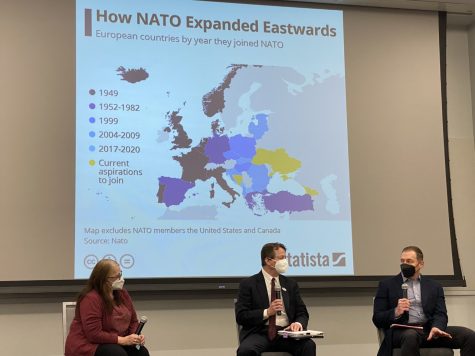
Fourth year student and political science major Torey Powell related her belief that Putin’s actions toward Ukraine stem from his insecurity over Ukraine’s desire to join NATO and sees it as a threat to his power. “This war isn’t about Russia, it’s about Putin and Ukraine,” she said.
Addressing the first question “Why is Putin doing this?” Payne said, “My three words for today are unprecedented geopolitical peril. That is where we are right now. Why has Putin decided to put us in this position? There are theories out there that it is to reunite the Russian Soviet Union.” Payne also suggested that Putin’s aggression might stem from being power-hungry and stir-crazy from the pandemic.
Slabach stated during the discussions that at first he was surprised that Putin orchestrated a “full-scale invasion” on Ukraine, but once you focus on the series of events, Slabach saw the full picture: “If you go back and look at the various things he’s done leading up to this, you can sort of connect the dots and you could say, at least in [Putin’s] mind, ’This is logical. These are the progression that, until I am stopped, I will continue to do these things.’”
Natalie Smith, a political science major and third year student used the panel as an opportunity for gathering reliable facts about the ongoing conflict. Smith said, “I am glad they had [the panel] because it is really hard trusting the information online that you get from tiktok, Instagram or most social media people my age are on. It’s important to get it from a source you trust, which is the school.”
Smith continued with the reminder that the world is shaken by what is happening in Ukraine and no country is immune to conflict. “I think [war] affects all of us. Even if we are on the other side of the world, we are all human beings at the end of the day. If it could happen to one of us, it could happen to all of us, no matter our size. Ukraine is putting up a really good fight, and they are not that big [of a country] and have the support of the people around them,” she said.
One tool that Ukraine has now is the power of its citizens and their use of social media. Ohan pointed out the importance of the online audience as live reels and pictures are distributed in a matter of minutes world wide. “It’s a new environment in which [Putin] is trying to [invade]. I only think the social media aspect can only help Ukraine,” said Ohan.
When considering the effect of the conflict in the United States, Powell said, “I think it brings us closer together as a nation because we’ve been so divided over social issues. This is one I feel like we can stand on.” Many countries have supported Ukraine as they defend themselves.
The panel closed with information about organizations that are currently supporting Ukraine’s efforts, including Global Empowerment Mission (GEM) who is “on the ground in Medyka, Poland serving and relocating thousands of evacuees from Ukraine.”
Chavez said, “It is a humanitarian crisis. It is very sad to hear about it. And at the end, all of the websites or sources that we can look up and support are good to have as well.”
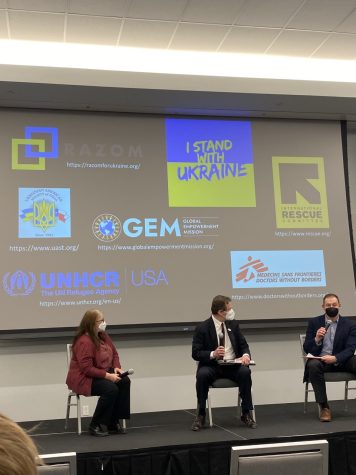
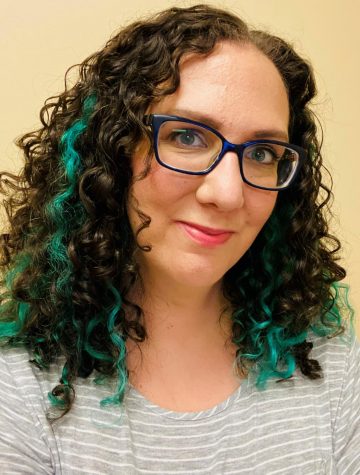
Veida Dima is a senior at Texas Wesleyan University pursuing a degree in English. She has been a content producer for Rambler Media Group since Spring...

